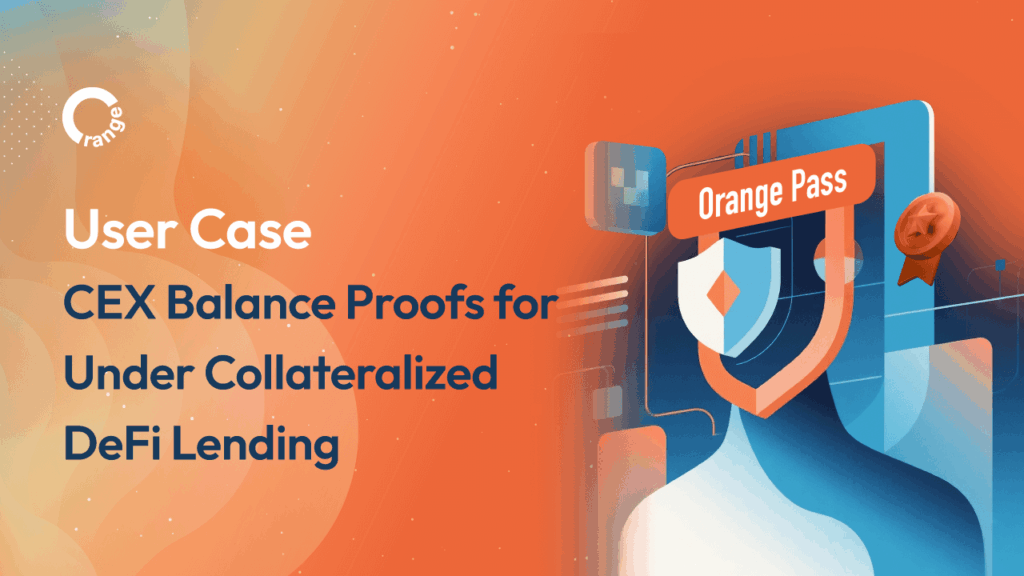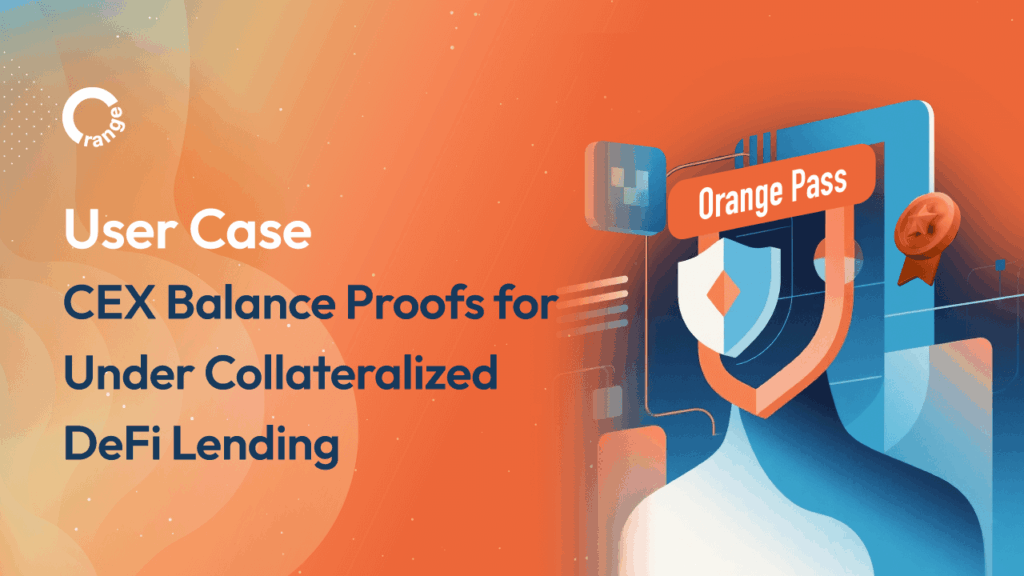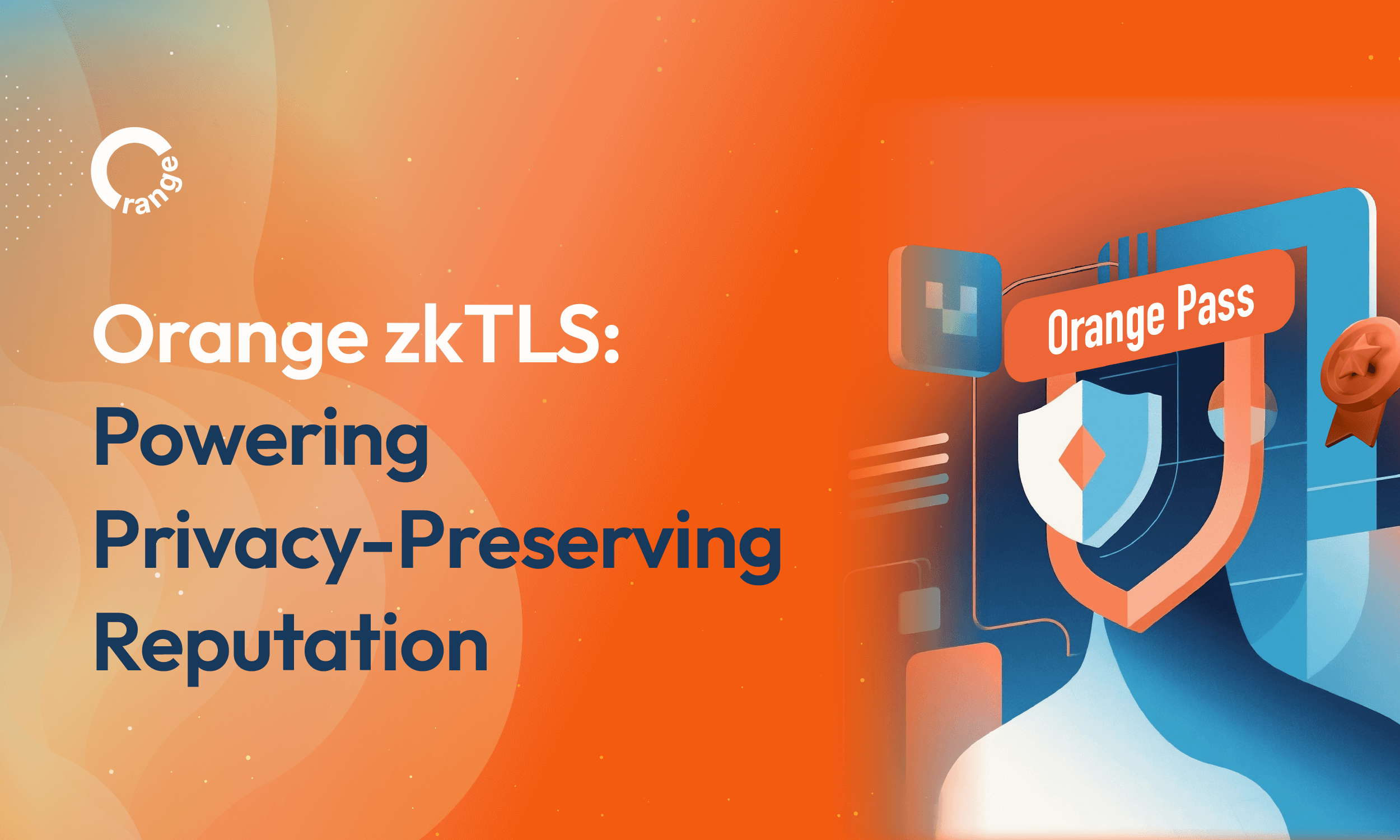
With zkTLS, DeFi protocols can accept verifiable proof that a borrower holds a specified minimum balance on a centralized exchange without ever seeing the borrower’s KYC data or exact asset amounts. This unlocks under‑collateralized lending while keeping users’ Web2 privacy intact and avoiding reliance on expensive, centralized APIs.
1 Problem Space
Most DeFi money markets require strict over‑collateralization because they have no trustworthy way to evaluate off‑chain creditworthiness. Meanwhile, millions of traders hold substantial balances on CEXs like Binance or OKX. If those balances could be attested on‑chain privately, protocols could price credit risk more accurately and reduce collateral ratios, dramatically improving capital efficiency.
Traditional approaches rely on:
• Centralized data oracles → single‑point‑of‑failure & privacy leaks.
• Direct API calls → high cost (e.g., X API pricing) & KYC exposure.
2 Enter zkTLS
zkTLS is Orange Protocol’s SDK for generating zero‑knowledge proofs about Web2 data behind HTTPS endpoints. It extends TLS handshake logic with a SNARK circuit, allowing a prover to extract, hash and sign precise fields from a Web2 response while withholding everything else.
For CEX balance attestations, zkTLS: 1. Initiates a user‑side HTTPS request to /api/v3/account (or equivalent).
2. Filters only the total asset value field.
3. Proves in ZK that that value ≥ required threshold ($10k, $100k, etc.).
4. Outputs a succinct proof + public signal <wallet, exchange, tier>.
3 Integration Flow
flowchart TD
user[Trader Wallet] HTTPS + zkTLS to prover(Client SDK)
subgraph Off‑chain
Prover to ZKP to attestation[Orange Attestation Registry]
end
attestation calldata > lending[DeFi Lending Protocol]
lending loan USDC > user
- Borrower UX ≈ 30 seconds, no doxxing.
- Protocol Side only needs the Orange zkTLS verifier library + a policy contract that decodes the attestation token.
4 Risk Considerations
* Proof freshness → require timestamp ≤ N blocks.
* Exchange API key scope → read‑only keys only.
* Revocation → Orange Registry supports attestation expiry & slashing.
5 Looking Ahead
Phase‑2 will add risk‑weighted tiers and optional Farcaster social score blending, so protocols can combine financial solvency with sybil‑resistant identity, powered entirely by zkTLS.
Stay tuned for Part 2, where we tackle DAO Sybil Resistance using multi‑source social proofs.



